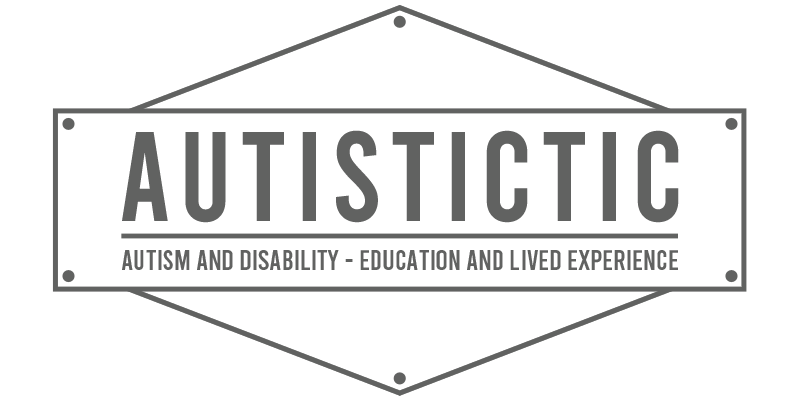HOME » BLOG » SHELTERED WORKSHOPS – SHOULD THEY BE ABOLISHED?

SHELTERED WORKSHOPS – SHOULD THEY BE ABOLISHED?

Welcome to the last part of my blog series “SHELTERED WORKSHOPS”.
Content of this series:
PART 1 – OVERVIEW
PART 2 – SHELTERED WORKSHOPS AND AUTISM
PART 3 – PERSONAL EXPERIENCE
PART 4 – WORK EXAMPLES
PART 5 – SHOULD SHELTERED WORKSHOPS BE ABOLISHED?
Please note that I am based in Germany so certain things may be different in your country.
WHY SHELTERED WORKSHOPS ARE PROBLEMATIC
Sheltered workshops…
…exploit disabled people by paying extremely low sub-minimum wages (on average 1,50€/hr [$1.70]).
…are meant to be temporary places of occupation that transition disabled people into regular jobs, but this only happens for a less than 1% of people.
…are segregated and present a barrier to inclusion.
…can isolate disabled people which puts them at increased risk of abuse.
…cannot accommodate everyone and everything.
I wrote in detail about these problems in PART 1 – OVERVIEW.
Sheltered workshops sub-minimum wages as well as their not transitioning disabled people into regular jobs both work against the United Nations CONVENTION ON THE RIGHTS OF PERSONS WITH DISABILITIES (CRDP).
ARTICLE 27 – WORK AND EMPLOYMENT of the CRPD states disabled people have “the right to the opportunity to gain a living by work freely chosen or accepted in a labor market and work environment that is open, inclusive and accessible to persons with disabilities.”.
HOW CAN WE FIX THESE PROBLEMS?
RE-WORKING SHELTERED WORKSHOPS
One option could be to re-work sheltered workshops.
Pay every disabled person working in sheltered workshops at least minimum wage.
Turn sheltered workshops into the transitional temporary facilities they were meant to be. This means no permanent occupation but rather a transitional program. Its main purpose is to teach necessary skills and find accessible and appropriate employment.
To make regular employment possible for disabled people we would also need to:
– find or create more than 300,000 accessible appropriate jobs
(number of disabled people occupied in sheltered workshops in 2017).
– teach companies about accessibility, accommodations, disability etc.
– enforce disability rights in the regular work market.
ABOLISHING SHELTERED WORKSHOPS
Another option could be to abolish sheltered workshops.
Give all staff their 3-months’ notice.
Cancel all disabled peoples contracts.
Dissolve the entire operation.
To make regular employment possible for disabled people we would also need to:
– teach disabled people all the skills necessary to work a regular job
– help disabled people find accessible regular jobs
– support disabled people after they found a regular job
– find or create more than 300,000 accessible appropriate jobs
(number of disabled people occupied in sheltered workshops in 2017)
– teach companies about accessibility, accommodations, disability etc.
– enforce disability rights in the regular work market
CAN IT WORK?
Integrating disabled people into the regular job market is a complex undertaking. We need specialized companies and likely a very long time to fully realize this. That means we still need options for disabled people during that transition period.
There are a couple of potential problems with both approaches:
– paying minimum wage might put sheltered workshops out of business
– companies might not hire disabled people if they have to pay them minimum wage
– more than 300,000 accessible jobs might not exist or be possible to create
– regular employment might not be possible for every disabled person
If it doesn’t work, disabled people might be left with nothing to do, nowhere to go, and receive more harm to their physical and mental health throughout the process.
Until we try it we don’t know if it would work – but try we must because the current state is unacceptable.
WHO GETS TO DECIDE?
I think there really are two issues here, not just one:
1. What happens to disabled people needing employment in the future?
2. What happens to disabled people currently already occupied by sheltered workshops?
Not putting disabled people needing employment into sheltered workshops anymore is something I can get behind as long as viable alternatives for them exist.
Transitioning disabled people from sheltered workshops into regular jobs is also perfectly fine as long as that is what they want.
We need to listen to the disabled people affected, whether they are for or against sheltered workshops. Furthermore, we need to ensure we understand and protect the interests of those disabled people with more complex needs and communication difficulties.
PERSONAL OPINION
As someone occupied by a sheltered workshop, my personal opinion on this topic is this:
Accessible, appropriate, autonomously chosen regular jobs that pay at least minimum wage for every disabled person in an inclusive society is the ideal. Re-worked sheltered workshops that pay minimum wage and are temporary facilities that transition disabled people into real jobs are viable as long as the ideal isn’t yet realized.
Discussing and deciding what to do with sheltered workshops without consulting and listening to the people working in them is unacceptable. Nothing about us without us.
CONCLUSION
Disability and employment will likely never be an easy topic. But some things I know for sure:
1. Everybody deserves at least minimum wage.
2. Everybody deserves to be included and treated equally by society.
3. Everybody deserves to have their needs met.
4. Everybody deserves to discover and strive for their full potential.
5. Everybody deserves to be autonomous.
We must do anything necessary to make these things happen.
FURTHER RESOURCES
Because this is an incredibly important topic and affected disabled peoples voices MUST be heard, please consider also watching the following videos on the topic:
BOTTOM DOLLARS – A FILM EXPLAINING SHELTERED WORKSHOPS IN THE UNITED STATES FEATURING SHELTERED WORKSHOP WORKERS
Testimonials from Gloria Marrero, Pamela Steward, Charles Biebl, Roy Rocha, James Meadors, Betty Williams, Tillman Mitchell, Le’Ron Jackson, Sara Frost, Hugh Bertolin, Dexter Smith, Andy Owens, Joe Steffy, Trust Jones, Brendan Welch
[Kindly brought to my attention by SARA on Twitter]
MASSACHUSETTS SELF-ADVOCATE JOHN ANTON SPEAKS ON SUBMINIMUM WAGE
[Video kindly brought to my attention by SARA on Twitter]
PUBLIC HEARING ON HOUSE BILL 1706
Minutes 5:45-10:30 Explanation of the bill
Minutes 29:30-44:25 Testimonials from Ramona Hattendorf, Shaun Bickley, Adrienne Stewart, Jim Larson, Amelia Gross, Ivan Smith, David Lord, Robert Wardell
[Video kindly brought to my attention by IVAN SMITH on Twitter]
CONTENT WARNING: There is a senator making ableist remarks and continously infantilizing disabled adults in this video from 57:20-1:00:50 and from 1:09:21-1:10:37
PUBLIC HEARING ON SENATE BILL 5753
Minutes 53:30-1:19:15 Testimonials from Shaun Bickley, Adrienne Stewart, Amelia Gross, Ivan Smith, Robert Wardell, David Lord, Jim Larson
[Video kindly brought to my attention by IVAN SMITH on Twitter]
This was the last post in this series.
The entire content of this series:
PART 1 – OVERVIEW
PART 2 – SHELTERED WORKSHOPS AND AUTISM
PART 3 – PERSONAL EXPERIENCE
PART 4 – WORK EXAMPLES
PART 5 – SHOULD SHELTERED WORKSHOPS BE ABOLISHED?

Leave a Reply